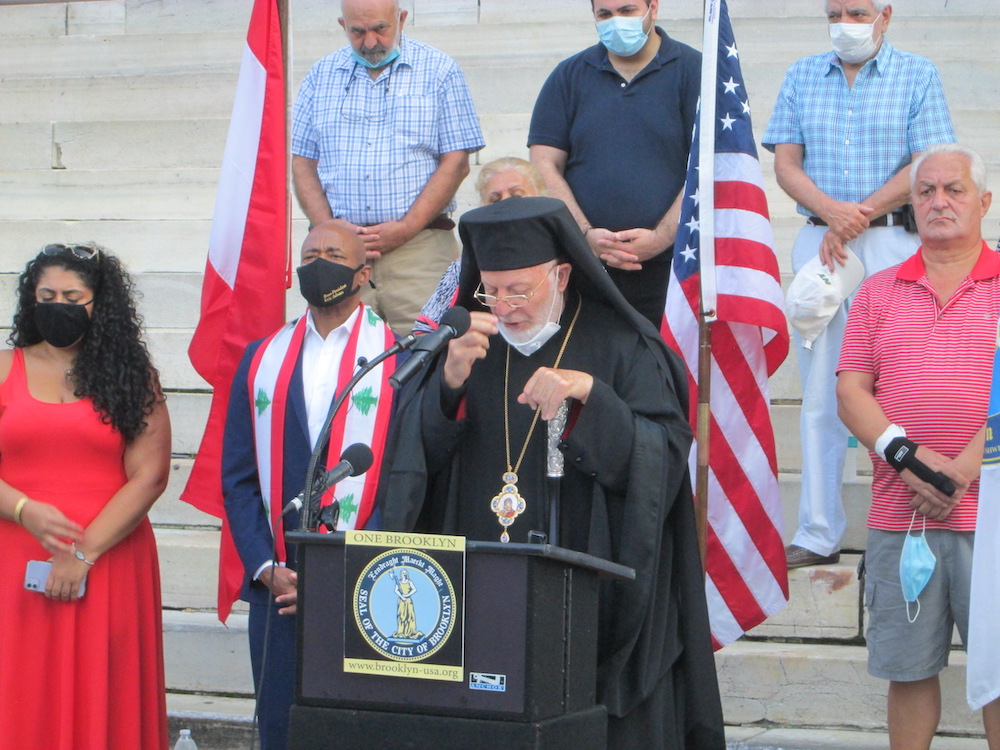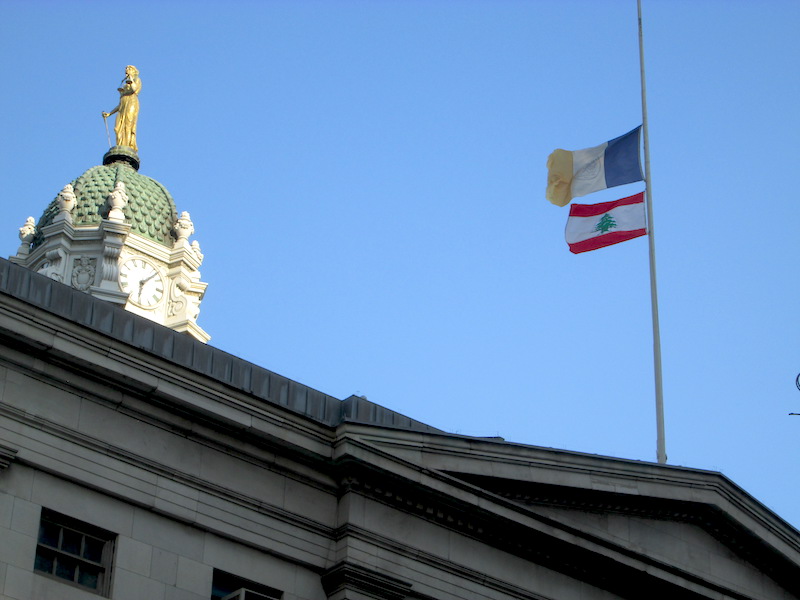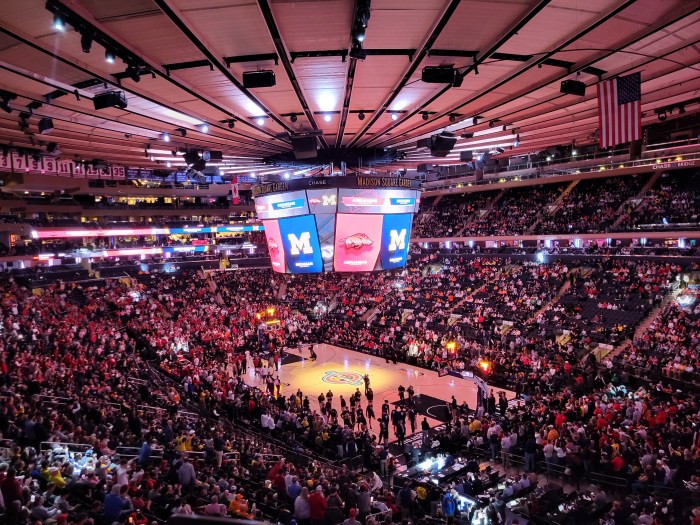Lebanon was rocked last week by a massive explosion in Beirut which killed or maimed thousands and left 300,000 homeless. That tragedy was the subject of a vigil held Monday outside Brooklyn Borough Hall, where Borough President Eric Adams and a host of Lebanese-American community leaders came together to mourn the country’s loss.
“When the blast destroyed the pier area, and we saw the images of a firebomb that was reminiscent of what happened at Hiroshima, the impact was felt all the way here in New York in general, but specifically here in the borough of Brooklyn,” Adams said.
The Hiroshima comparison was not hyperbole. As other speakers noted, the explosion was one of the largest (and deadliest) in human history.
“Just to put things in perspective – the third largest in the world,” elaborated speaker Sonia Abi-Habib. “Hiroshima. Nagasaki. And Beirut.”

Abi-Habib was one of many figures in Brooklyn’s Lebanese-American community asking for donations in their motherland’s time of need. Many of these were men of faith, several of them from the nearby Our Lady of Lebanon Maronite Cathedral. (While Lebanon itself has a large Muslim population, the Lebanese diaspora is largely Christian.)
Archbishop Joseph Al-Zehlaoui, Metropolitan of North America’s Antiochian Archdiocese, led the attendees in a prayer for Lebanon, asking God to “give strength to those who are trying to rebuild a nation.” He was one of many personally affected by the blast.
“That first day on the fourth of August, I stayed after midnight,” Metropolitan Joseph told the crowd. “I made about 75 phone calls, just to make sure that the people I know are still alive.”
For Sonia Abi-Habib’s husband John, an entrepreneur and prominent figure in Southern Brooklyn’s Republican circles, the day
“Someone called me the following day and asked, ‘John, how do you feel?’” Abi-Habib said. “I didn’t know how to answer. I told him, we’re all dead today – if it didn’t kill our bodies, it killed our hearts.”
Still, Abi-Habib saw reason for hope in the wake of devastation. He mentioned Pamela Zeinoun, the Lebanese nurse whose image went viral after she carried newborn triplets to safety in the hours after the blast, saving their lives.
According to Adams, such behavior is “hard-wired” into the people of Lebanon.
“I visited Lebanon some years ago, and I’ll never forget meeting a family at a restaurant,” Adams said. “They had just met me and they invited me to their house. I was able to have dinner with their family. They took me around their city, to the cedar forests, to Pigeons’ Rock.”
“The level of hospitality that they showed – we believe Brooklyn is the Beirut of America.”
Brooklyn has been a hotspot for Lebanese immigrants since the late 1800s, and boasts one of the largest Lebanese-American populations in the country.
The event was a somber reminder of Beirut’s current plight, but it was also a PR coup for Adams, who’s currently a frontrunner in NYC’s 2021 mayoral race. Adams reportedly has been trying to “out-white” his opponents with targeted appeals to NYC’s white enclaves. As Adams himself told the New York Times, “people look at a black candidate and they think he can’t go into the Baysides, Bay Ridges and Marine Parks, and I’m not going to be the candidate that can’t do that.”
Bay Ridge, non-coincidentally, has one of the largest Lebanese-American populations in the country; events like Monday’s vigil fit into Adams’ strategy of wooing white ethnics. (The 2020 Census explicitly lists “Lebanese” as a subgroup of “White,” although many Lebanese-Americans object to this classification.)
Politics, however, were the last thing on anyone’s mind – and certainly the last thing on anyone’s lips – that Monday evening.
“I’m not sure how to say this, but thank you for thinking of us in our time of need,” John Abi-Habib said, glancing towards Adams. “Your solidarity with the Lebanese people dates back so many years, and we appreciate it.”
As proof of this bond, he pointed towards Borough Hall’s flagpole, where Brooklyn and Lebanon’s flags flew in tandem – a handy visual shorthand for the bond between Beirut and our borough.






